Having less than three wives is a sin- Actor Uwaezuoke

Nollywood veteran Stephen Alajemba, widely recognized by his stage name Uwaezuoke, has boldly articulated his views on polygamy. According to Alajemba, it is a grave sin for a man to limit himself to marrying fewer than three wives, a claim that has sparked considerable intrigue. During an engaging interview with Ugwumba TV, the seasoned actor made his controversial stance clear, effectively stirring the pot of social and cultural dialogue surrounding contemporary marriage practices in Nigeria. “It’s a sin to marry one or two wives. But if you marry three or four, you will be free from sin,” he stated emphatically. Alajemba’s perspective raises a number of thought-provoking questions about marital practices and the societal norms that influence them. Delving deeper into his rationale, Alajemba warned of the potential dangers that accompany monogamous and even bitheist unions. He expressed a belief that men who opt for a singular or double matrimonial commitment expose themselves to considerable risk, especially from their spouses. “If you marry one wife your life is at risk,” he cautioned, suggesting a sinister interpretation of interpersonal relationships that could lend itself to conflict and betrayal. What lies behind Alajemba’s viewpoint may reflect a traditional perspective rooted in cultural practices that often celebrate larger family units. In his view, marrying two wives could lead to conspiratorial behaviour between the spouses, implying that strife and jealousy are inevitable when a man limits his affections to just two partners. He stated, “If you marry two wives, they will conspire to poison you,” suggesting that the strain of rivalry could escalate into harmful action. In contrast, Alajemba believes that such tensions would dissipate in a polygamous arrangement where three or more wives are involved. “But if you marry three or more wives, they will all be on their own and you will only be providing for them,” he asserted. This statement reflects a notion that diversity within a marriage allows for a more harmonious existence, where each wife can coexist without feeling threatened by the presence of another. Furthermore, he elaborated on the dynamics of sharing responsibilities, stating, “You will be taking turns with their meals and bedrooms.” This comment echoes an age-old understanding of how polygamous relationships can be structured, often emphasizing communal living arrangements and resource sharing. Such a model, as he suggests, could potentially lessen the emotional burdens that might arise in a more traditional marriage. However, it’s essential to recognize that Alajemba’s views may not resonate universally. Opinions on marriage practices have evolved significantly, particularly within modern Nigerian society. Debates on gender equality, personal choice, and the rights of women in relationships continue to dominate conversations throughout the nation and beyond. Regardless of where one stands on the issue, Alajemba’s bold declarations certainly have reignited discussions around the complexity and varied interpretations of marriage in contemporary society. His remarks serve as a critical reminder that discussions about familial structures, gender roles, and societal expectations remain highly relevant and multifaceted. While Stephen Alajemba, through his provocative statements, calls attention to the age-old practices of polygamy, the broader societal conversation about marital norms continues to unfold. As Nigeria grapples with its cultural identity, the implications of such viewpoints will undoubtedly influence future discussions around marriage practices and personal relationships across the country.
Banks, others raise N2.7tn from capital markets in 11 months

The Securities and Exchange Commission (SEC) has revealed on Monday that banks and various corporate entities raised an impressive N2.7 trillion from the Nigerian capital market during the first eleven months of 2024. This robust figure underscores the heightened activity in investments, securities, and financial instruments as businesses strive to expand operations, contribute to economic growth, and enhance overall financial market dynamics. The SEC’s report highlights that the significant sum includes equity capital while explicitly excluding funds raised by investment managers within the capital market framework. Notably, banks emerged as the front-runners in this fundraising exercise, generating approximately N1.7 trillion through various recapitalization initiatives. This development aligns with the ongoing efforts to fortify the financial sector and boost investor confidence. Dr. Emomotimi Agama, the Director General of the SEC, delivered this pivotal information during his keynote address at the SEC’s 2024 Journalists Academy in Abuja. The conference, themed “Fintech: Leveraging Technology to Drive Capital Market Participation,” shed light on the critical role of technology in enhancing capital market engagement. “We are excited to report that the banking recapitalization exercise has yielded substantial success, raising about N2.7 trillion from the market. This accomplishment promises to bolster financial stability, reinforce investor confidence, and ultimately enhance the Nigerian economy,” Dr. Agama stated, emphasizing the importance of robust capital markets. He elaborated further, stating, “Of the N2.7 trillion total, N1.7 trillion was raised from the banking sector, while the remainder comprises equity rates and rights issues. It is essential to note that this figure excludes the additional amounts raised and refinanced by asset management companies during this period.” Beyond this financial success, Dr. Agama highlighted the workshop’s significance in reinforcing the commission’s shared responsibilities to promote transparency, build confidence, and raise awareness about the capital market among stakeholders. The SEC Director-General provided a broad economic overview, elaborating that macroeconomic indicators have shown notable shifts since the current management’s inception. The commission has undertaken pivotal steps to reposition its operations effectively, including the establishment of specialized departments targeting specific market developments to ensure more efficient regulation. Among the newly created units are the Fintech and Innovation Department, the Derivatives and Risk Management Department, and an office dedicated to managing municipal bonds and unclaimed dividends. Dr. Agama emphasized the critical nature of these departments in regulating burgeoning areas such as crypto-assets, derivatives, and Foreign Exchange Contracts for Differences (CFDs). He noted that addressing longstanding issues like unclaimed dividends is vital for nurturing financial innovation and managing emerging risks, ultimately enhancing service delivery to market participants. Moreover, the SEC has made significant strides in registering Capital Market Operators, with a focus on onboarding FinTech entities through its Regulatory Incubation Programmes. This initiative aims to foster an inclusive regulatory environment that meets the demands of a rapidly evolving financial landscape. Dr Agama also pointed out the SEC’s collaboration with the Nigerian Financial Intelligence Unit in its quest to help Nigeria exit the Financial Action Task Force (FATF) grey list. Exiting this list is a crucial step for the advancement of the Nigerian financial sector, ensuring that the nation maintains its international financial credibility and avoids potential economic sanctions. He commended the proactive initiatives of the Presidential Enabling Business Environment Council, which introduced a 90-day Regulatory Reform Accelerator Programme aimed at improving service delivery within ministries, departments, and agencies (MDAs). Such reforms are anticipated to attract both local and foreign investments by enhancing transparency and access to vital information. Furthermore, Dr Agama reaffirmed the SEC’s commitment to updating its governing legislation, the Investment Securities Act of 2007, and highlighted the SEC’s endorsement of the Ministry of Finance Incorporated Real Estate Investment Fund, which aims to address Nigeria’s housing deficit through affordable mortgage financing—an initiative closely aligned with the government’s ambitious One Million Homes campaign. Looking ahead, Dr. Agama outlined the SEC’s Revised Capital Market Masterplan (2021-2025), which emphasizes stakeholder engagement, awareness, capacity building, and developing regulatory frameworks that support innovative financial products. In conclusion, Dr. Agama presented a snapshot of the SEC’s objectives for 2025, focusing on enhancing market transparency and confidence, leveraging technology for financial inclusion, and strengthening partnerships with domestic and international stakeholders to sustain financial stability. He acknowledged the pivotal role of the media in fostering public understanding and trust in the capital market, underscoring the necessity for accurate reporting and constructive dialogue in this vital sector of the Nigerian economy.
Borno receives 100 trucks of grain from Tinubu

In a determined effort to alleviate food shortages and ease the plight of flood-stricken communities, Borno State Governor, Babagana Umara Zulum, on Monday, launched the distribution of 100 trucks of food items donated by President Bola Ahmed Tinubu. The flag-off ceremony took place in Ngala Local Government Area, one of the regions hardest hit by recent flooding that severed the area from the rest of the country. The relief items, comprising maize, millet, and sorghum, were transported to Ngala as part of a coordinated effort to address the food supply crisis caused by months of isolation. New Daily Prime report at the event, Governor Zulum outlined the critical need for the intervention and expressed gratitude to the federal government for its timely support.“This town was completely cut off from the rest of the country for about four months due to heavy rainfall and severe flooding,” Zulum said. “The movement of food items to Ngala was obstructed, leaving residents in dire need. This informed our visit today to provide relief and help mitigate the hardships faced by the people.” The governor commended President Bola Tinubu for his proactive leadership and the federal agencies involved in making the aid possible. He disclosed that the donation included 100 trucks of assorted grains, while another 100 trucks of rice had been allocated for victims of a separate flood disaster in Maiduguri. “On behalf of the people of Borno State, I want to extend my deepest appreciation to President Bola Ahmed Tinubu for his unwavering support,” Zulum stated. “The 100 trucks of maize, millet, and sorghum distributed today are a testament to his commitment to assisting vulnerable communities. Additionally, the federal government has provided another 100 trucks of rice for the victims of the Maiduguri flood disaster.” While highlighting the importance of immediate relief measures, Zulum also emphasized his administration’s focus on long-term solutions to foster self-sufficiency among residents. He revealed plans to transition from food distribution to sustainable agricultural initiatives aimed at empowering communities. “As part of our medium- and long-term strategy, the state government is establishing irrigation structures, particularly in Ngala Local Government Area, to enable year-round farming,” the governor explained. “Our goal is to ensure that affected communities can return to cultivating their lands and reduce dependency on aid.” The governor reaffirmed his administration’s commitment to addressing the challenges faced by vulnerable populations, particularly those impacted by natural disasters and displacement. He assured residents that the government’s support would evolve from emergency relief to initiatives that promote stability and resilience. Ngala Local Government Area has faced significant challenges in recent years, including displacement caused by insurgency and natural disasters. Monday’s distribution was welcomed by residents, who expressed gratitude for the relief materials and the state government’s continued efforts to address their needs. The governor’s initiative marks another step in Borno State’s ongoing recovery and underscores the importance of collaboration between state and federal authorities in responding to humanitarian crises.
Edo Policewoman dismissed for reporting rape case; threatens suicide

Former police officer, Inspector Edith Uduma, has issued a heart-wrenching threat to end her life along with her children following her termination from the police force. Uduma claims her dismissal was a direct consequence of exposing an alleged rape incident involving a colleague. The situation has garnered significant public attention, with Uduma emphasizing that her side of the story has not been heard in the media. The controversy began when Uduma recorded a shocking video in October, which went viral. The footage depicted Sergeant Abraham, a fellow officer, in an inappropriate situation with a 17-year-old girl inside the police station located in the South Ibie area of Edo State. In the video, Abraham is seen hastily pulling on his trousers and questioning why Uduma was filming the scene, while the visibly distressed girl lies on a chair in the room. Following the incident, both Uduma and Abraham were subjected to an orderly room trial resulting in their respective dismissals. The Edo State Police Command, through a statement released in November by its Public Relations Officer, Moses Yamu, accused Uduma of conspiring with her husband, Inspector Ibrahim Mohammed, to extort N1 million from Sergeant Abraham to cover up the scandal. According to the command, when Abraham countered with an offer of N45,000 instead, the incriminating video was subsequently leaked online. In addressing the allegations, the police command stated, “The female officer, instead of reporting the incident to the Divisional Police Officer or the Incident Duty Officer, took advantage of the situation to enrich herself by conspiring with her husband to demand N1 million from the sergeant.” This assertion has been vehemently denied by Uduma, who insists that she has been wronged and was not given a chance to defend herself adequately. In an emotional interview with NEW DAILY PRIME, Uduma expressed her despair over the situation. “What the Edo Command is saying is not true. They know I lack the connections to fight back,” she lamented. She asserted that her dismissal was unjust, and she remains adamant that the truth behind her actions has been obscured and manipulated. Uduma further revealed that an ongoing investigation by the Force Headquarters in Abuja remains unresolved, yet the Edo command acted swiftly to dismiss her. “I want justice. My dismissal is unjust,” she stated with tears in her eyes. She also added details of her husband’s demotion, which she claims has no bearing on his involvement in the incident. “During that time, he merely brought me food at the station,” she clarified. As the fallout continues, Uduma has voiced her desperation. “If nobody listens to me if they keep searching for me to arrest me, I will poison my children and myself. I feel trapped,” she said, highlighting her current state of anguish and isolation, having been in hiding and away from her children for an extended period. Uduma accused the Divisional Police Officer at her station of prompting her to request the N1 million for negotiation purposes when Abraham reportedly fled after the incident. “It surprises me how other officers have turned against me,” she remarked. “If the police can do this to one of their own, what chance do ordinary civilians have?” Mystery surrounds the previous DPO, SP Lilian Osemwegie, who has since retired. Attempts to reach her for comments were unsuccessful. Meanwhile, the situation has sparked outrage among human rights organizations. The Take It Back Movement has submitted a petition to the Inspector General of Police, Kayode Egbetokun, calling for a thorough investigation into Uduma’s unjust dismissal. The petition emphasizes the grave injustice faced by Uduma and her husband, urging the police hierarchy to review the circumstances surrounding their dismissals. “It is disturbing that rather than commend the bravery of Uduma for revealing the alleged rape, the police command chose to punish her,” the petition stated, emphasizing the implications of this action on the broader context of justice and accountability within the police force. As the situation unfolds, calls for justice and a fair investigation into Uduma’s allegations grow louder, shining a light on the challenges of integrity and accountability within law enforcement agencies.
Oba of Benin plans lawsuit withdrawal after rights restoration
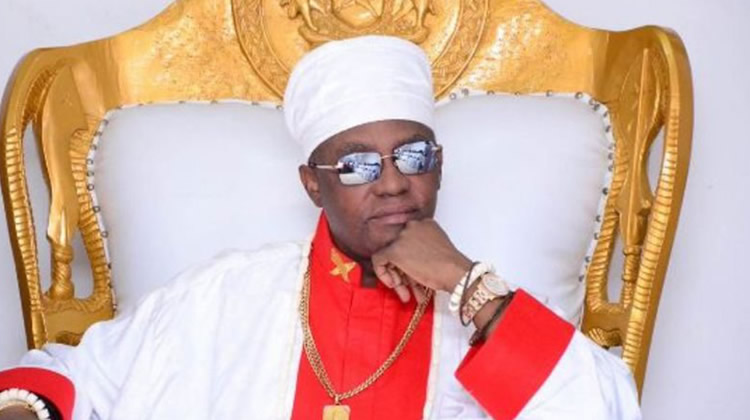
The Benin Kingdom, Oba Ewuare II, the revered Oba of Benin, alongside the Benin Traditional Council, is poised to withdraw the legal actions they initiated against the Edo State government. This shift comes after Governor Monday Okpebholo made a landmark decision on Sunday to restore the full statutory rights of the Oba and dismantle the policies imposed by the previous administration under Governor Godwin Obaseki. The announcement was made through an official statement from the Chief Press Secretary to the Governor, Fred Itua. Within the statement, it was revealed that Governor Okpebholo has abolished the newly established traditional councils in Edo South that were created by Obaseki’s administration, thereby reaffirming the authority of the Benin Traditional Council and the Oba’s position within the community. Governor Okpebholo’s measures reflect a commitment to rectify the governance issues that led to tensions between the Benin monarchy and the state government during Obaseki’s tenure. The governor’s actions also include backing the federal government’s recognition of the Oba’s palace as the rightful custodian of valuable Benin artefacts that were looted during the British colonial expedition in 1897. Dr. Samson Osagie, the state Attorney General and Commissioner for Justice, clarified that the governor’s decision is pivotal in resolving the disputes that resulted in lawsuits initiated by the Oba of Benin and the Benin Traditional Council against the state government. Osagie remarked, “These cases are civil matters initiated by the Oba of Benin and the Traditional Council against the state government, so there is a strong encouragement for parties to settle amicably.” He further noted that as the two parties explore reconciliation, it is expected that the Oba and the Traditional Council will soon direct their legal representatives to withdraw their lawsuits from the court, marking the end of a contentious chapter in their relations. Osagie elaborated that the government’s actions symbolize a proactive approach to fostering harmony and peace, paving the way for a collaborative future between the Benin monarchy and state governance. He stated that the governor’s declaration serves as a precursor to the cessation of all legal proceedings related to the controversial concession of the Oba Akenzua Cultural Centre to the Benin Traditional Council, as well as the establishment of the additional councils that were previously contested. The statement from Okpebholo’s office emphasized the administration’s dedication to upholding the dignity and authority of the Oba of Benin. “This administration hereby abolishes the new traditional councils in Edo South created by the last administration,” it asserted. Moreover, Governor Okpebholo has rescinded the prior administration’s decision to convert the historic Oba Akenzua II Cultural Centre into a motor park, affirming intentions to restore the site to its intended cultural function. In the spirit of revitalizing the Benin Traditional Council’s financial entitlements, the governor has mandated a return to the status quo before the creation of the newly established councils, ensuring that the Council’s resources are adequately preserved. Additionally, the governor has reiterated his support for the federal gazette recognizing Oba Ewuare II as the legitimate owner and custodian of the repatriated Benin artefacts. Distancing his government from the Museum of West African Art, Okpebholo has thrown his support behind the establishment of the Benin Royal Museum, which aims to house these invaluable cultural treasures. “The Federal Government has released a gazette recognizing the ownership and custody of the repatriated Benin artefacts by Oba Ewuare II,” the statement concluded. “Governor Okpebholo respects the rights of the traditional ruler and is committed to ensuring that the Oba plays a vital role in preserving the rich cultural heritage of the Benin people.” This pivotal resolution promises to usher in a new era of cooperation and respect between the Benin monarchy and the state government, emphasizing cultural heritage and traditional governance.
Sokoto state approves N200,000 monthly allowance for principals
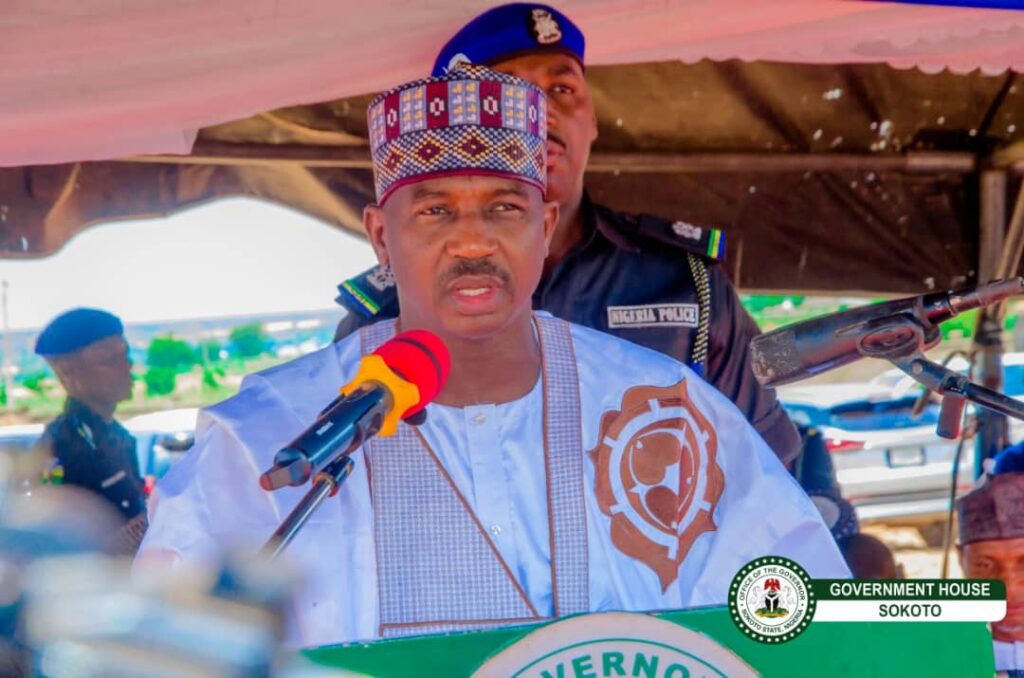
Governor Ahmed Aliyu Sokoto has approved a monthly maintenance allowance of N200,000 for each school principal. This announcement was made during the Sokoto State 2025 Citizens Budget Discussion, which took place on Monday at the Sultan Abubakar Maccido Institute of Quranic and General Studies. The governor’s decision comes as a response to appeals made by various stakeholders in the education sector. Notably, former Deputy Governor Chiso Abdullahi urged the state administration to allocate funds specifically for school principals. Abdullahi highlighted the pressing need for financial resources to address immediate maintenance issues within the schools, stating that such funds would enable principals to quickly repair minor damages to infrastructure without navigating the often lengthy government approval processes. “The timely provision of these funds will empower our school principals to take immediate action when issues arise,” Abdullahi remarked. “It is crucial for maintaining a conducive learning environment that allows our educators and students to thrive.” In support of this initiative, the Chief Press Secretary to the Governor, Abubakar Bawa, confirmed that the monthly allowance would extend to all secondary schools within the state’s 23 local government areas. The scheme is set to commence in January 2025. “Let me assure this esteemed gathering that the governor has taken into consideration the plea from the former deputy governor,” Bawa stated. “Each school principal will receive N200,000 monthly, allowing for swift responses to maintenance needs and ensuring that our educational facilities remain in good condition.” The introduction of this maintenance allowance speaks volumes about the government’s commitment to improving education in Sokoto State. It aligns with ongoing efforts to enhance the overall quality of education by addressing not only the academic needs but also the infrastructure that supports learning. By enabling principals to swiftly respond to repair requests, the initiative is expected to foster a more efficient and effective management of school facilities. Furthermore, Governor Sokoto’s administration is taking steps to review the allowances of traditional rulers within the state. In light of the current economic climate, the governor has tasked the state Commissioner for Local Government Affairs, Dadi Adare, with evaluating and adjusting the financial provisions for these community leaders. This directive follows a request made by Muhammad Jabbi Kilgori, the district head of Kilgori, who represented the Sultan of Sokoto, Muhammad Sa’ad Abubakar, during the budget discussion. The request was for improved allowances that reflect the existing economic realities faced by traditional leaders. This dual initiative not only underscores the governor’s responsiveness to the pressing needs of both educational and traditional institutions within Sokoto State but also marks a concerted effort to adapt to the economic challenges impacting the populace. By providing meaningful financial support for school maintenance and reevaluating the compensation of community leaders, the Sokoto administration aims to foster a stronger foundation for governance and social development. As the state prepares for the implementation of these measures in the coming year, stakeholders, educators, and community leaders alike await the positive impact this policy will have on the educational landscape of Sokoto. The commitment to enhancing school infrastructure and supporting community leadership reflects a holistic approach to governance, paving the way for a brighter future for the residents of Sokoto State. The anticipation is that these initiatives will invigorate the state’s education sector and improve the standard of living for its citizens.
Unemployment rate falls 4.3% in Q2, reports-: NBS
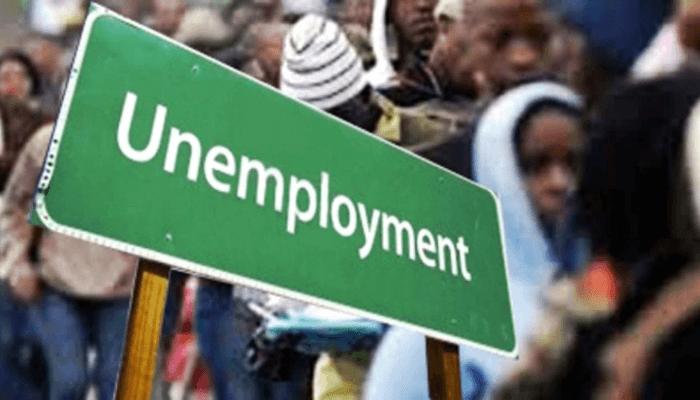
The Nigerian unemployment rate has dropped to 4.3 per cent in the second quarter of 2024, indicating a significant improvement in labour market conditions. This latest statistic, released on Monday by the National Bureau of Statistics (NBS), signifies a decrease from the previous quarter’s rate of 5.3 per cent and represents a gradual recovery from 5.0 per cent recorded in the third quarter of 2023. The report provides a comprehensive overview of the employment landscape in Nigeria, revealing a favourable trend in workforce engagement. The Labour Force Participation Rate, which tracks the proportion of the working-age population actively participating in the labour market, increased to 79.5 per cent, up from 77.3 per cent in the first quarter of 2024. This uptick reflects an enhanced willingness of individuals to seek and secure employment opportunities. Furthermore, the Employment-to-Population Ratio, a critical indicator of employment levels, also painted a bright picture, climbing to 76.1 per cent in Q22024 from 73.2 per cent in Q1. This improvement suggests that a larger segment of the working-age population has been able to secure gainful employment during this period, a welcome sign of economic resilience. Self-employment continues to dominate the labour market, representing 85.6 per cent of total employment, an increase from 84 per cent in the previous quarter. This trend emphasizes the entrepreneurial spirit of Nigerians, even as informal employment rose slightly to 93.0 per cent, underscoring the economy’s heavy reliance on informal jobs for livelihood. The report further highlighted a significant development in youth unemployment, particularly among individuals aged 15 to 24. The youth unemployment rate declined markedly to 6.5 per cent, down from 8.4 per cent in the previous quarter. This reduction signals a positive shift for younger Nigerians entering the workforce amidst the challenging economic landscape. However, the report also sheds light on gender disparities within the labour market. The unemployment rate for females stood at 5.1 per cent, higher than the 3.4 per cent rate for their male counterparts. This discrepancy suggests an urgent need for targeted, gender-inclusive policies aimed at bridging the employment gap and ensuring equitable access to job opportunities for all segments of society. The NBS defined the unemployment rate as the percentage of the labour force that is unemployed while actively seeking work. It is an essential component of labour underutilization metrics. The Q22024 unemployment rate represents a slight increase of 0.1 percentage points compared to the same period last year. Geographically, the unemployment rates revealed interesting patterns: urban areas experienced a rate of 5.2 per cent, while rural areas enjoyed a lower rate of 2.8 per cent. This regional disparity calls for tailored strategies to address employment challenges specific to various locales across the country. Additionally, time-related underemployment, which measures individuals desiring more hours of work, fell to 9.2 per cent in Q22024 from 10.6 per cent in Q1. Labour underutilisation metrics also demonstrated improvement, with LU2 (encompassing unemployment and time-related underemployment) decreasing to 13.0 per cent from 15.3 per cent in the preceding quarter. The report concluded with notable declines recorded in LU3 and LU4 metrics, which include potential labour force participation, now at 5.9 per cent and 14.5 per cent, respectively. Collectively, these figures present an optimistic outlook for Nigeria’s labour market, affirming the potential for ongoing economic recovery and employment growth. As the nation continues to navigate its complexities, these developments signal a step forward in creating a more robust and inclusive labour market for all Nigerians.
FG continues tnquiry into civil servants’ overseas salaries
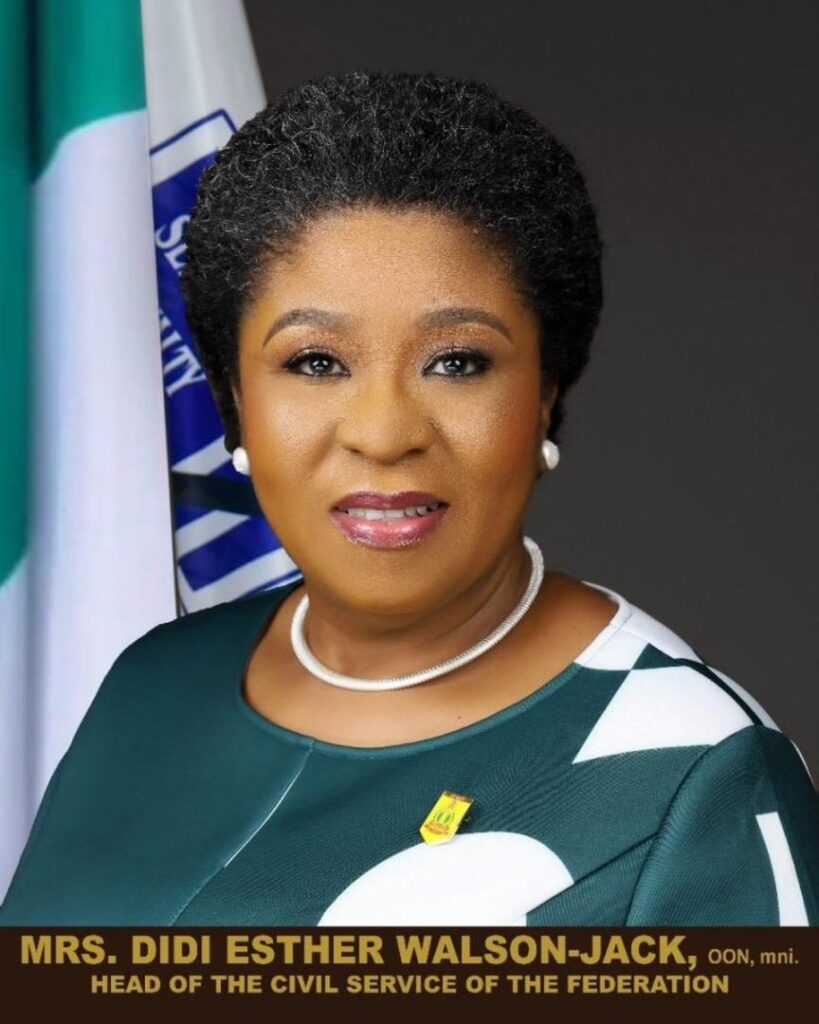
The Head of the Civil Service of the Federation, Didi Walson-Jack, addressed the public on Monday, affirming that the investigation initiated by the Federal Government, aimed at identifying civil servants who are still receiving salaries while residing abroad, is currently in progress. In a clear response to allegations suggesting the discontinuation of this critical investigation, Walson-Jack emphasized the government’s unwavering commitment to addressing the issue. She remarked that individuals who have relocated to foreign countries in pursuit of better employment opportunities should no longer benefit financially from the Nigerian civil service system. This statement was delivered during a significant event in Abuja, commemorating her first 100 days in office as the Head of the Civil Service. Walson-Jack took this occasion to reflect on her achievements and the current state of the civil service under her leadership. The timing of this announcement is particularly notable as it follows a directive from President Bola Tinubu five months ago, which mandated that any civil servant found to be accessing government salaries after moving abroad must return the funds. This investigation illustrates the government’s commitment to uphold financial integrity within the civil service sector. Walson-Jack stated, “We are diligently continuing the process by meticulously scrutinizing the Integrated Payroll and Personnel Information System (IPPIS) payroll. This effort aims to delineate between those civil servants who are actively present in the country and those who are no longer residents.” She further emphasized that the investigation is an ongoing endeavor, essential to ensuring that financial resources are not unjustly disbursed to individuals living outside the nation. Additionally, the Head of the Civil Service noted that some progress has already been achieved in the investigation. “We will remain vigilant in monitoring the situation until it has been thoroughly resolved,” she asserted, reiterating the importance of accountability within the service. During her address, Walson-Jack took the opportunity to express her gratitude toward her dedicated staff and highlighted the instrumental role of what she termed the ‘Super Permanent Secretaries’ in facilitating a smooth transition in her new role. “The first 100 days in office mark a crucial milestone. It provides us with the opportunity to review our accomplishments, assess our progress thus far, and outline our objectives moving forward,” she stated, emphasizing the importance of strategic planning. Walson-Jack also recognized President Tinubu’s pivotal role in her appointment, expressing her appreciation for the opportunity to serve in this capacity. Underlining the ongoing challenges facing the civil service, she mentioned that her office is actively collaborating with the Federal Civil Service Commission to combat the issue of job racketeering practice that undermines the integrity of the recruitment process within the civil service. “I fully understand that the Federal Civil Service Commission is tasked with overseeing recruitment; however, we are fully supporting their work in this area. Our commitment to eradicating job racketeering remains strong,” Walson-Jack affirmed. She further pledged that the civil service will take decisive action against individuals who have secured employment through fraudulent methods, stating, “Where evidence of unethical recruitment practices is found, we will collaborate with the commission to ensure that appropriate sanctions are imposed. However the investigation continues, and the commitment of the Federal Government and the Head of the Civil Service to maintaining the integrity and fidelity of the civil service is made clear. As Walson-Jack leads this critical initiative, the accountability measures implemented will serve to preserve the fundamental principles upon which the civil service was built.
Gov Mutfwang presents N471.13 billion 2025 budget to House of Assembly
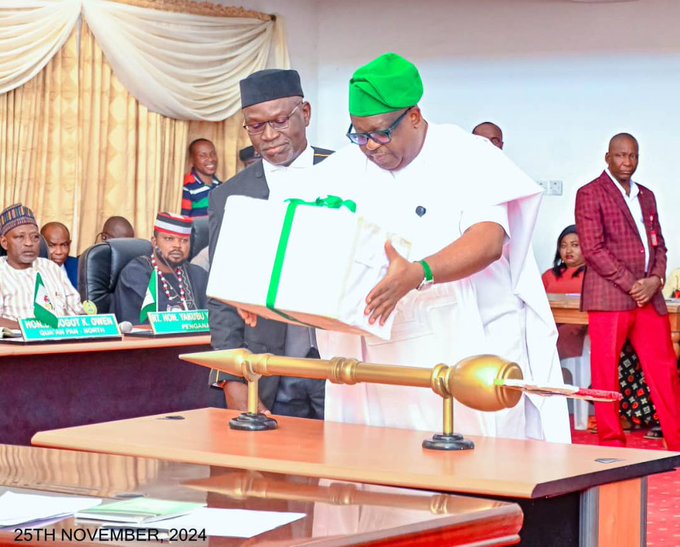
Plateau State Governor, Caleb Mutfwang, on Monday, presented the 2025 Budget Estimate of N471.13 billion to the Plateau State House of Assembly. The budget, titled the “Budget of Consolidation and Sustainability”, is designed to improve the well-being and welfare of the state’s residents, reinforcing the administration’s commitment to people-centred development. Governor Mutfwang emphasised that the budget would focus on executing programs and projects aimed at fostering sustainable development and directly impacting the lives of Plateau’s citizens. He assured that the budget would be implemented in line with the principles of the Fiscal Transparency, Accountability, and Sustainability (SFTAS) program, which is supported by the World Bank. This approach aims to ensure transparency, accountability, and inclusivity while incorporating feedback from grassroots communities for a more participatory governance process. READ ALSO: PDP govs reaffirm commitment to rebuilding party at strategic meeting in Jos Governor Mutfwang appealed for the lawmakers’ cooperation and swift passage of the budget. He stressed that timely approval would allow for the prompt commencement of critical projects that are vital to the state’s development. The governor also directed all Heads of Ministries, Departments, and Agencies (MDAs) to actively engage in their scheduled defence sessions and provide the necessary information to support effective deliberations. Governor Mutfwang concluded by reaffirming his administration’s determination to transform and reposition Plateau State for peace, progress, and prosperity.
Obi congratulates Ugo Ugochukwu on FIA World Cup victory

The 2023 presidential candidate of the the Labour Party, LP, Peter Obi, has congratulated Ugo Ugochukwu Orlandi following his historic victory at the 71st Macau Grand Prix, where he clinched the 2024 FIA World Cup title. Ugo’s achievement makes him the first American driver in over four decades to win the prestigious championship. In a statement on his X, Obi praised Ugo’s extraordinary talent, dedication, and hard work, emphasizing that his victory serves as a powerful reminder of the potential that can be unlocked when youth are provided with the right support and guidance. The former governor of Anambra State noted that Ugo’s triumph is not only a source of pride but also an inspiration to young Nigerians, illustrating that anything is possible with passion and opportunity. Ugo, who is of Nigerian heritage through his mother, renowned supermodel Oluchi Onweagba Orlandi, and Italian descent through his father, former fashion designer Luca Orlandi, embodies a rich, multicultural background. His success, Obi said, serves as a shining example for Nigerian youth, inspiring them to pursue their dreams and break barriers. READ ALSO: Obi urges unity as national grid collapses again He also commended McLaren for their foresight in recognizing Ugo’s potential and their ongoing support in developing young talent. Obi expressed excitement for Ugo’s future, looking forward to watching him continue to break new groundin motorsport. “Congratulations once again, Ugo, for making history and inspiring millions. I look forward to witnessing your continued success,” Obi added.



